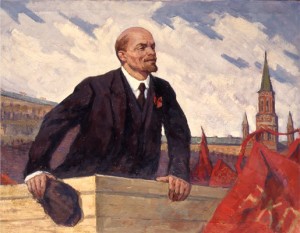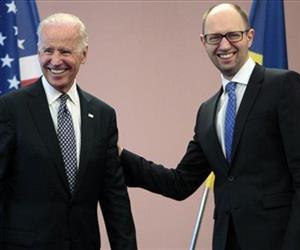– from Zoltan Zigedy is available at:
http://zzs-blg.blogspot.com/
A hundred years from now, humans may remember 2014 as the year that we first learned that we may have irreversibly destabilized the great ice sheet of West Antarctica, and thus set in motion more than 10 feet of sea-level rise.
Meanwhile, 2015 could be the year of the double whammy — when we learned the same about one gigantic glacier of East Antarctica, which could set in motion roughly the same amount all over again. Northern Hemisphere residents and Americans in particular should take note — when the bottom of the world loses vast amounts of ice, those of us living closer to its top get more sea level rise than the rest of the planet, thanks to the law of gravity… (Washington Post, March 16)
The latest findings on climate change reported by the Washington Post mark another step on the path toward environmental catastrophe. Apart from philistines, apocalyptists, and other celebrants of ignorance, people understand that the growing degradation of our planet promises pain in the short run and disaster beyond. When humans first emerged on the planet, the environment, the climate, and other features of the natural world presented seemingly insurmountable obstacles to survival. The pre-history and early history of humankind was a tenuous struggle to construct bulwarks against natural calumny and a desperate effort to exploit nature’s meager offerings.
Nearly two hundred thousand years after the appearance of homo sapiens, circumstances have turned full circle. Humanity has found the means to dominate nature (though far from in a humanitarian way), but with seemingly little regard for the sustainability of the human project. Today, the formerly vulnerable species threatens to render the earth inhospitable to itself, a kind of mindless suicide by the only species that genuinely claims to own a mind.
For those determined to avoid this suicidal path, locating the cause and finding solutions is an urgent task.
Is “Progress†or “Growth†the Enemy?
It is fashionable in some quarters to locate the cause of the environmental crisis in the insatiable lust for “progress,†a term as elusive as it is imprecise. Harking back to the sixties and the “counter-culture†era, many envision a world where consumerism and the fetish for the new are banished in favor of a simpler life style and intellectual, spiritual, or artistic values. There is much to admire in a commitment to modest consumption and arrested acquisitiveness.
However admirable this may be as a personal choice, it is extremely short-sighted social policy. Certainly, the upper-middle classes of the developed countries could benefit the environment by exiting the insane competition for larger houses, more luxurious cars, and the latest techno-gizmo. Unquestionably, the mindless quest for more and better is neither admirable nor sustainable. But before we condemn progress or growth, we must recognize that more is at stake in rejecting progress or growth than thwarting rampant consumerism in the US and Europe or the vulgar excesses of the upper classes.
Apart from consumption madness, billions of the world’s population lack even the basics of sustainable life. They barely survive in the midst of poverty, disease, and inadequate shelter, food and water. Until the material means to rectify the sorry, inhuman plight of billions is available, progress and growth must be an imperative. To callously deny them a future out of scorn for hyper-consumerism is petty and, paradoxically, selfish. They cannot be made the scapegoat for Western privileged waste and excess. Those who so easily condemn progress or growth are shamefully blind to the inequities of class, race, and nationality.
Solutions
Prospective solutions come in many forms and many shades. Individual solutions are useful and defensible provided that they do no deny the disadvantaged the opportunity to achieve standards of living reasonably commensurate with the standards of the more privileged. For example, asking people without access to modern appliances to curtail usage of inefficient technologies is both irrational and unjust. Equality of sacrifice in the face of vast economic inequities cannot be the solution to environmental degradation. While recycling, re-use, and other personal conservation projects are necessary and meaningful, they are incapable of sufficiently slowing the global expansion and exhaustion of resources. Nor do individual, personal solutions offset the major sources of environmental destruction: corporations and governments.
Conventional policy solutions cluster around market-based and regulatory approaches to the environmental crisis.
Most environmental activists see the failure of either market-based or regulatory measures as a failure of political will. They believe that politicians and political movements have yet to recognize the dire consequences we face by ignoring the environmental crisis. While this may be true, it fails to recognize the acute limitations of market-based and regulatory solutions and the impossibility of their effectiveness in a global capitalist economy.
The political will is not absent because of ignorance, but because the political system is owned and nourished by the capitalists. Moreover, the global economy– overwhelmingly a capitalist economy– is fueled by profits and profits alone. And profits are sustained and expanded by turning everything material or immaterial into a commodity. As a commodity, nature’s resources hold no value other than what can be attached to the pursuit of profit.
It is the exploitation of human and natural resources– labor and nature’s bounty– that is the grist for profit’s mill. And capitalism puts profits ahead of nature as well as ahead of people. Both history and the logic of capitalist accumulation and expansion demonstrate the inevitability of waste and destruction. Only when environmental degradation impedes the process of accumulation and profit expansion will the capitalist system respond to the crisis; environmental scientists tell us that will be too late.
And that is precisely the point acknowledged by Naomi Klein in her recent book, This Changes Everything: Capitalism vs. the Climate. Klein’s anti-capitalism, like so many versions associated with the social democratic, soft-left, has been somewhat fuzzy, vacillating between rejecting the neo-liberal incarnation of capitalism and something elusive, but more daring. But her current thinking is sharper, though still short of an endorsement of a coherent vision of socialism. She concedes: “But because we have waited as long as we have, and we now need to cut our emissions as deeply as we need to, we now have a conflict not just with neoliberalism, but a conflict with capitalism because it challenges the growth imperative.†(quoted in Monthly Review, Notes from the Editors, March, 2015). For this, Klein has been criticized widely by her liberal readers still anchored in fealty to capitalism.
The editors of Monthly Review perceptively point out that “Klein’s argument here is irrefutable. To be sure, in criticizing neoliberalism for removing the tools needed to address climate change she deftly avoids the issue of whether capital as a system could ever have seriously mitigated the problem.†(op. Cit.)
Capital cannot mitigate the problem.
The MR editors go on to persuasively argue:
Klein is realistic and radical enough to realize that her recognition of this necessity, together with her readiness to act on it, puts her and the entire left climate movement that she represents in conflict with capital as a system—and not just with its most virulent form of neoliberalism. It is, as she says, a “two stage argument,†and we are now in the second stage. There is no avoiding the fact that the logic of capital accumulation must give way if we are to have a reasonable chance of saving civilization and humanity. (op. Cit.)
For “the entire left climate movement†to move beyond individual solutions, market-based answers, regulation, rejection of neo-liberalism, and even capitalism, the movement must define and embrace another goal. What would it be?
Only a system that will replace the logic of profit-before-all with the broad interests of humanity can answer the question. Only a system that can supplant the anarchy of production and distribution with rational planning could count as an answer. Only a system that can substitute forward-looking public ownership for individual short-term self-interest will cope with the crisis. And only a system that erases the existing extreme inequalities associated with capitalism and imperialism can meet our need to bring social justice to the disadvantaged.
As reluctant as much of the left is to utter the word, the answer is quite simply: socialism.
The Unseen Elephant in the Room
Lost on most of the environmental movement, including the “left climate movement,†is the role of imperialism in stoking the environmental crisis. According to Wikipedia:
The United States Department of Defense is one of the largest single consumers of energy in the world, responsible for 93% of all US government fuel consumption in 2007… In FY 2006, the DoD used almost 30,000 gigawatt hours (GWH) of electricity, at a cost of almost $2.2 billion. The DoD’s electricity use would supply enough electricity to power more than 2.6 million average American homes. In electricity consumption, if it were a country, the DoD would rank 58th in the world, using slightly less than Denmark and slightly more than Syria (CIA World Factbook, 2006). The Department of Defense uses 4,600,000,000 US gallons… of fuel annually, an average of 12,600,000 US gallons… of fuel per day.
Add to this total the electricity and fuel usage of the rest of NATO, Japan, Russia, The Peoples Republic of China as well as those belligerents constantly at war with imperialism and you have uncountable and socially unnecessary waste of natural resources as well as ecological destruction.
Count the hundreds of military bases– outposts for imperialism– that devour resources better employed in a war to protect the environment.
Add to this total the unceasing pollution, the destruction of natural and man-made structures, the spoilage of land and water, etc. that accompany the endless use of devastating weapons.
The full effects of militarism and imperial aggression stagger the imagination.
Pentagon estimates of the production and maintenance of one weapons system alone– the F-35– have been reduced to over three-quarters of a trillion dollars– an enormous unmentioned cost to the environment.
Unfortunately, far too many environmentalists are more cognizant of the environmental damage of littering than they are aware of the enormous threat to the environment of imperial design and endless war. Joining the anti-imperialist, anti-war movement, fighting for an end to militarism, is potentially a far more effective way to reverse the ecological wounds that threaten the planet than the entire bundle of liberal and social democratic panaceas that currently dominate the discussion in the environmental movement: Prius, yes, but Predator drones, no.
As the environmental movement matures, it must embrace the socialist option. It must stand resolutely against militarism and its threat to the environment. No other stance will deflect “civilization†from its determined march toward self destruction. Authentic, militant environmentalism comes with partisanship for socialism and anti-imperialism.
Zoltan Zigedy

















